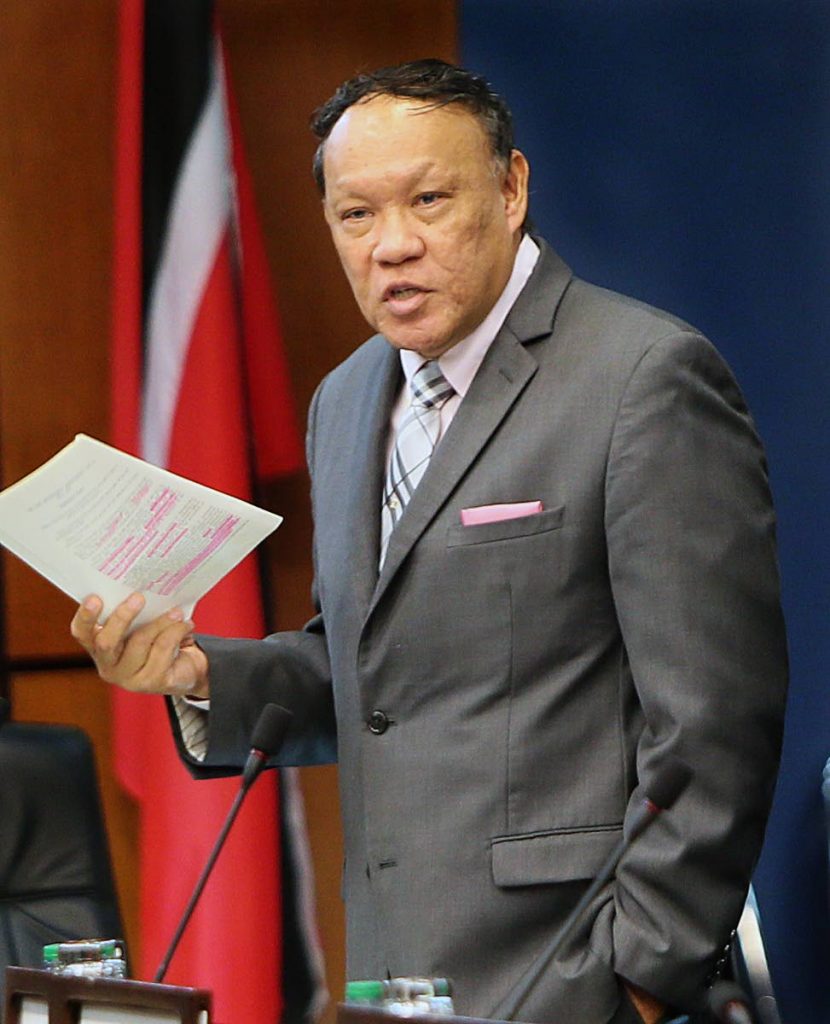S&P fallout

A many-sided battle raged recently over claims that outdated figures for natural gas production were given in error to global ratings agency Standard and Poor’s (S&P), leading to a downgrade of the country’s short-term outlook from stable to negative. Negative means a rating may be lowered, stable means it is unlikely to change, and positive means it may be raised.
Finance Minister Colm Imbert in two statements complained the Energy Ministry had failed to forward fresh figures of higher gas production (3.49 billion cubic feet (bcf) per day in the second half of 2017) to S&P which had then used wrong data (3.24 bcf from the first half of 2017) to give TT a lower-than-deserved assessment for the country’s short-term outlook.
Imbert said correct data reflected the TT economy in 2017 shrinking by only one per cent, not a wrongly listed figure of 2.6 per cent. Further, the right data suggests the TT economy will grow by 1.5 to 1.8 per cent this year, he added. Energy Minister Franklin Khan concurred, accepted blame and vowed his scrutiny before his ministry ever again sends such data to S&P.
Imbert however focused on lauding S&P’s elevation of TT to “investment grade” in its long-term credit rating, TT’s credit risk as a prospective debtor. BBB is the fourth-place rating on a 10 point scale. The S&P website said this BBB means TT has “adequate protection parameters”, but that “adverse economic conditions or changing circumstances are likely to weaken its capacity to meet financial commitments.”
The Central Bank Economic Bulletin and Monetary Policy announcement, both issued in March, each supported Imbert’s claim of increasing gas production in 2017. The announcement said, “Natural gas production rose year-on-year by 10 per cent in the second half of 2017 mainly owing to new gas output from the bpTT Juniper field.” The bulletin said, “Natural gas production rose 13.7 per cent (year-on-year) during the third quarter (Q3) of 2017 with output averaging 3,452.0 million standard cubic feet per day (mmscf/d).” It also listed 2017 production as 3.31 bcf (Q1), 3.17 bcf (Q2), 3.45 bcf (Q3) and 3.52 bcf (Q4.)
That said, Pointe-a-Pierre MP David Lee, Opposition spokesman on energy, was not buying Imbert’s explanation for the outlook downgrade.

Lee said the downgrade was not based on any report of falling gas production but rather on S&P’s concerns about Government’s broader running of the economy.
“S&P would have met these energy technocrats, S&P would have been liaising with them all these years. So why all of a sudden they have a problem?” said Lee. He said Imbert should not be allowed to “change the story” into issues of gas production levels and the reporting of such.
“The downgrade is about whether S&P thinks the country can repay its debt,” Lee said. “The Opposition met S&P. One of our understandings is that S&P’s criteria is about debt repayment.
“S&P doesn’t really get into a country’s microeconomics but whether the government of the day based on its policies can repay its debts.”
To support his view, Lee remarked that S&P had downgraded TT for two years in a row. “Last year S&P and Moody’s downgraded this country. Minister Imbert went to get an assessment from the third ratings agency Fitch, but we never got that rating publicised.
“This year for a second time S&P has downgraded TT and now the Minister of Finance’s new excuse is to blame the technocrats.”
Lee echoed previous remarks by Caroni East MP Dr Tim Gopeesingh that S&P was unlikely to fall foul of erroneous data from any single Government Ministry as they employ other, additional sources of information.
“As they have been in TT consistently, S&P would have been aware of the Juniper Project and issues of supply and demand for natural gas. So it is strange the Minister of Finance is blaming technocrats.”
Khan in reply to an urgent question by Opposition Senator Wade Mark told the Senate on Tuesday that he would like to propose that if S&P had possessed the correct data of higher gas production, they may not have downgraded TT’s outlook.
"I cannot say if the accurate information was provided, because it was in fact compiled and sent to Standard and Poor's but it was too late as the assessment had already been completed," Khan replied.
"I cannot speak on behalf of the rating agencies. It's their call. It may or may not have had an outcome of moving the outcome from stable to negative.
"But I think on a balance of probabilities — I have read their report and I have studied it — that if they had access to the new gas production forecasts I would want to propose that it may have had a positive effect on the outlook."

Comments
"S&P fallout"